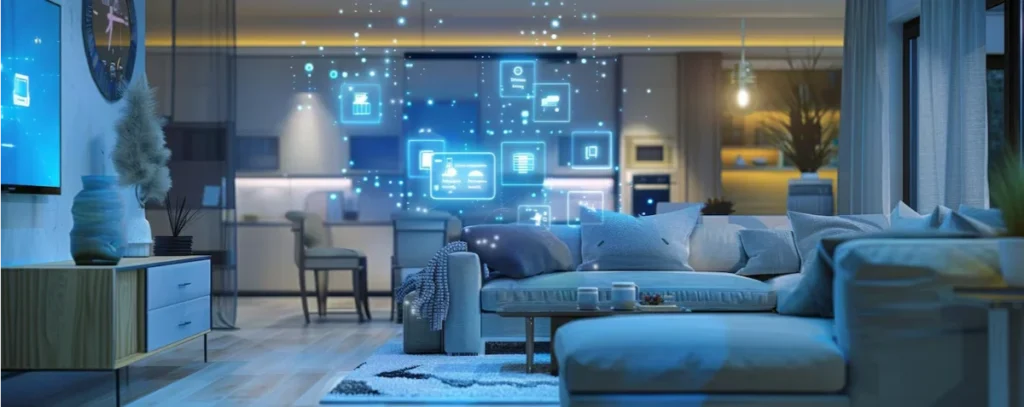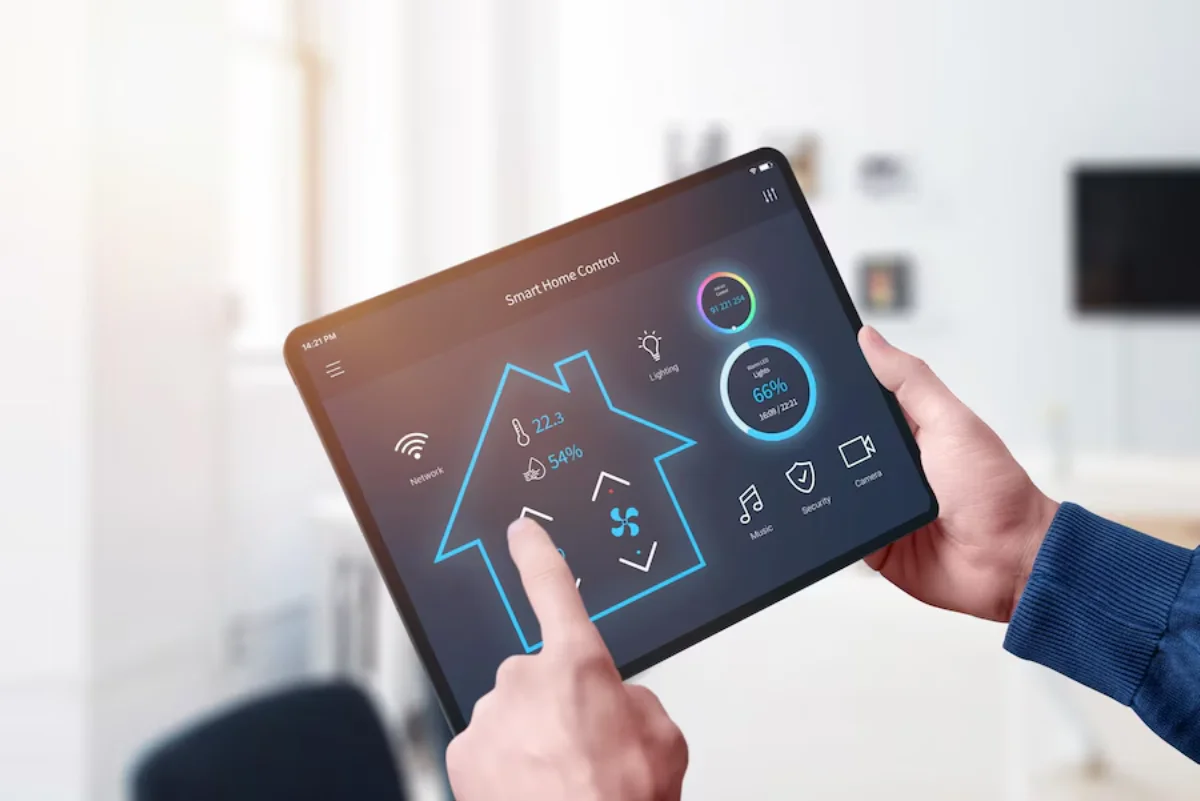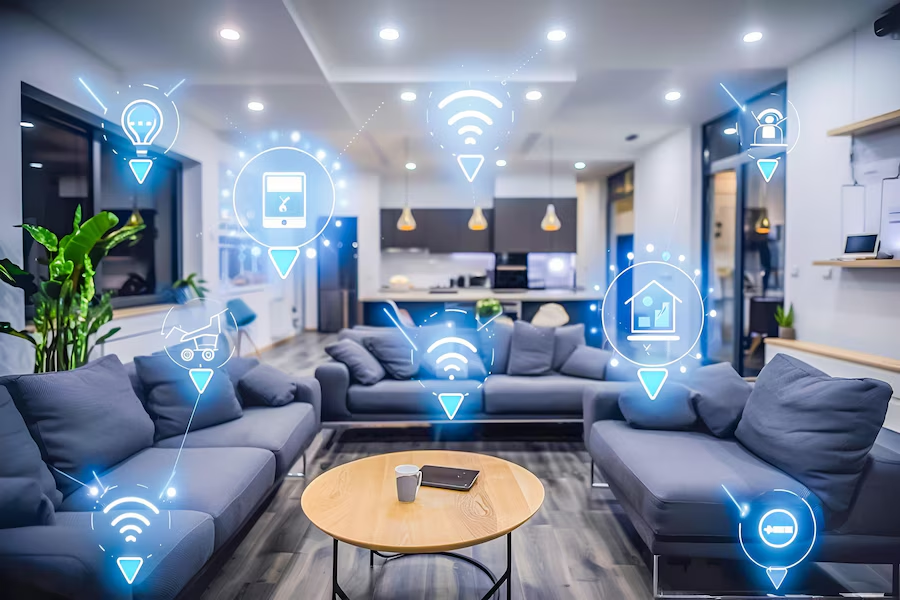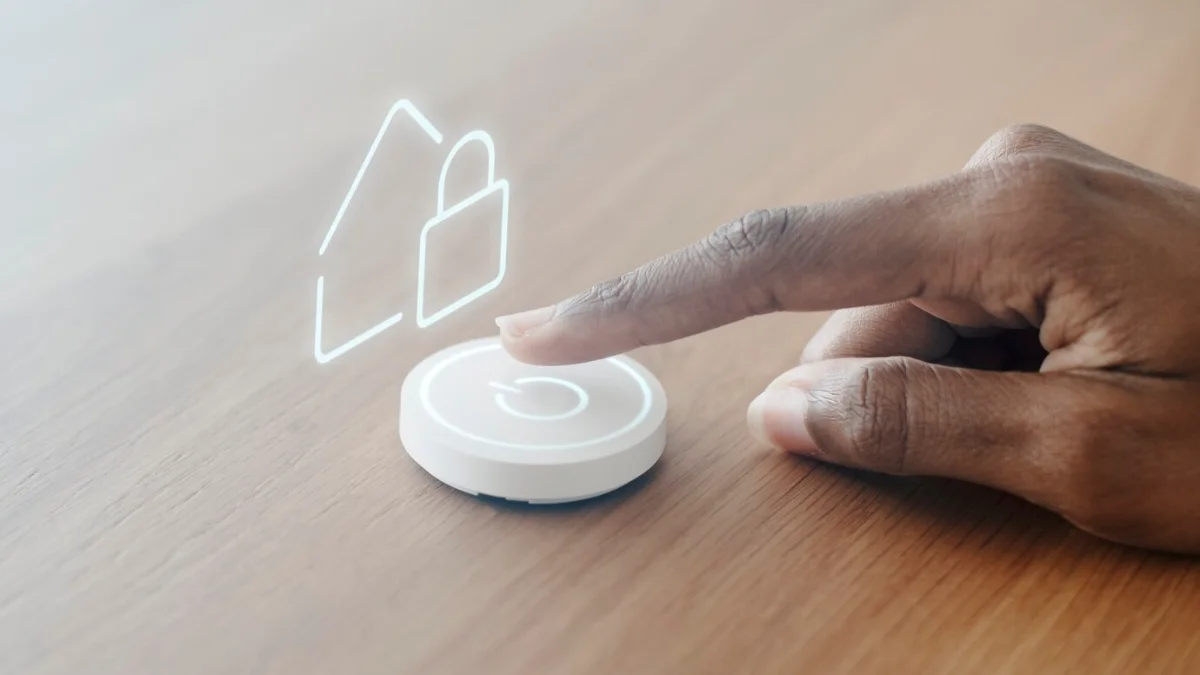The Technology Blog

The Impact of AI on Smart Home Technology
AI smart homes are changing how we live. They provide easy automation, better security, and save energy. The future of home living is bright! Automated home tech is changing how we live. It gives homeowners more control, convenience, and comfort with AI-driven innovations.
AI is changing our homes. From assistants like Amazon Alexa and Google Assistant to smart security systems and energy-saving automation, technology is everywhere. But how exactly is AI shaping the future of automated home tech, and what can we expect in the years to come?
In this article, we’ll look at how AI smart homes operate. We’ll discuss the latest in AI home assistants. Finally, we’ll cover the benefits and challenges of automated home tech.

What is an AI Smart Home?
An AI smart home is a living space filled with smart devices. These AI-powered tools and sensors team up to make the home automated, efficient, and responsive. These homes use machine learning, voice recognition, and IoT (Internet of Things) to perform tasks such as:
- Adjusting lighting, temperature, and security settings automatically
- Managing energy consumption based on user preferences
- Enhancing home security with AI-driven surveillance
- Providing hands-free control through voice-activated assistants
AI home assistants now work with smart home tech. This lets homeowners manage their homes easily.

Key AI Technologies Driving Smart Homes
1. AI-Powered Home Assistants
Voice-activated AI home assistants are key to smart homes. They let homeowners control many devices using just their voice.
Amazon Alexa, Google Assistant, and Apple’s Siri let users:
- Control smart lights, thermostats, and appliances.
- Set reminders, schedule appointments, and check the weather.
- Play music, answer questions, and get real-time info.
Advancement: AI assistants are now using Natural Language Processing (NLP) to understand context and user preferences, making interactions more intuitive and personalised.
2. AI in Smart Security Systems
Home security has become more advanced with AI-powered surveillance cameras and smart locks.
- Facial Recognition & Motion Detection – AI security cameras detect unusual activity and recognise familiar faces.
- AI-Powered Doorbells – Smart video doorbells use AI to identify visitors and detect suspicious movements.
- Automated Alarm Systems – AI systems predict potential security threats and send real-time alerts.
Google Nest Cam and Ring security systems use AI to tell apart humans, animals, and vehicles. This helps cut down on false alarms.
3. AI-Driven Climate Control & Energy Efficiency
One of the most significant benefits of AI smart homes is their ability to reduce energy consumption and lower utility bills.
- Smart Thermostats – AI-powered thermostats learn user preferences and adjust temperatures accordingly.
- Energy Monitoring AI – AI tracks electricity usage and suggests energy-saving adjustments.
- Automated Climate Control – AI integrates with weather forecasts to pre-adjust heating and cooling.
The Google Nest Thermostat uses AI to learn your daily habits. It optimises energy use, helping homeowners save up to 15% on heating and cooling costs.
4. AI in Smart Lighting & Home Automation
AI-driven automated home tech enables customised lighting and automation settings that adapt to user preferences.
- Motion-Sensitive Smart Lights – AI detects movement and automatically adjusts lighting.
- AI-Powered Scene Control – AI creates personalised lighting moods based on the time of day or activity.
- Integration with AI Assistants – AI connects smart lighting to voice assistants for hands-free control.
Philips Hue AI-powered lighting adjusts brightness based on natural daylight and occupancy.
5. AI in Smart Kitchens & Household Appliances
AI is making everyday tasks more convenient with smart kitchen gadgets and automated appliances.
- AI-Powered Refrigerators – Track food inventory and suggest recipes based on available ingredients.
- Voice-Activated Cooking Assistants – Provide real-time guidance for meal preparation.
- Smart Ovens & Coffee Makers – AI schedules cooking times and prepares meals with precision.
Samsung’s AI-powered smart fridge scans food expiration dates and recommends recipes.

Benefits of AI-Powered Smart Homes
1. Enhanced Convenience & Automation
AI customises home settings automatically. It handles daily tasks, like adjusting thermostats, controlling lights, and scheduling appliances, without needing manual input.
2. Increased Home Security
AI-driven security systems provide real-time alerts, facial recognition, and automated surveillance, keeping homes safer and more secure.
3. Improved Energy Efficiency & Sustainability
AI optimises energy use, reducing electricity bills and lowering carbon footprints.
4. Hands-Free Voice Control & Accessibility
AI-powered home assistants help elderly and disabled individuals manage their homes effortlessly through voice commands.
5. Smart Home Learning & Adaptation
AI-powered devices learn user preferences over time, improving efficiency and adapting to daily habits.
Challenges of AI-Powered Smart Homes
1. Privacy & Data Security Risks
AI-powered home assistants collect and store personal data, leading to concerns about hacking, surveillance, and data misuse.
Solution: Tech companies are implementing end-to-end encryption and user-controlled privacy settings.
2. High Initial Costs & Compatibility Issues
Smart home technology can be expensive, and not all devices are compatible with each other.
Solution: More affordable and interoperable AI smart home devices are being developed.
3. AI Dependence & Connectivity Issues
AI systems rely on strong internet connections—power outages or WiFi failures can disrupt automation.
Solution: Smart homes are incorporating offline AI processing to reduce dependence on cloud servers.
The Future of AI Smart Homes
1. Hyper-Personalised AI Assistants
Future AI home assistants will detect emotions and understand the context. This will help them respond more naturally.
Alexa and Google Assistant are evolving to detect tone and mood, adjusting their responses accordingly.
2. AI-Powered Predictive Maintenance
AI will keep an eye on home appliances. It will predict when repairs or maintenance are needed. This helps prevent breakdowns.
AI in smart washing machines will notify users before mechanical issues occur.
3. AI & Robotics in Home Automation
AI-driven home robots will assist with cleaning, cooking, and home management.
AI-powered vacuum cleaners like Roomba use AI to map homes and optimise cleaning routes.
4. AI & Blockchain for Smart Home Security
AI will integrate blockchain technology to enhance security in AI-powered home automation systems.
Blockchain-powered smart locks will create tamper-proof security access.
The Future of AI Smart Homes: Smarter Living Through Automation and Innovation
AI-powered smart home technology is revolutionising modern living, making homes smarter, safer, and more energy-efficient. From AI personal assistants and automated climate control to intelligent security systems, AI is redefining home automation.
Challenges like privacy, AI dependence, and compatibility still exist. However, smart home technology is getting better every day. It’s becoming easier to use, more reliable, and smarter.
As AI-powered home assistants become more sophisticated, the future of smart homes will be characterised by hyper-personalisation, automation, and enhanced security, transforming the way we interact with our living spaces.









